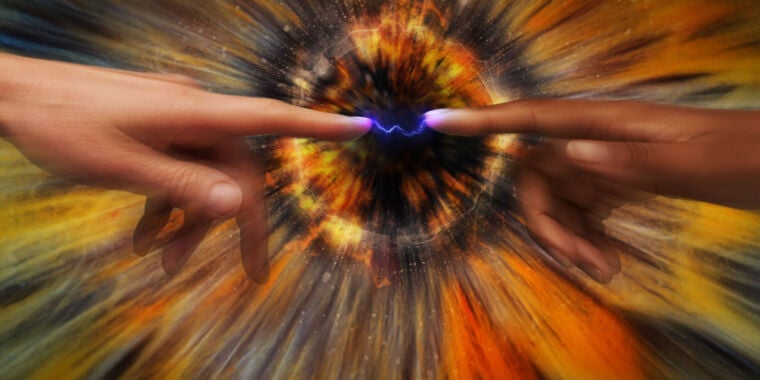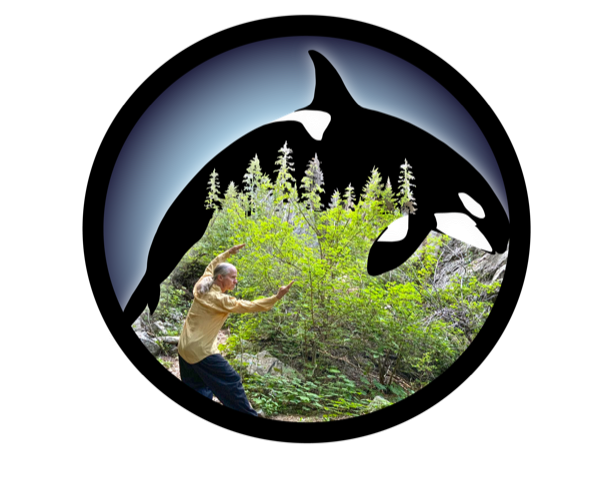- cross-posted to:
- science@mander.xyz
- cross-posted to:
- science@mander.xyz
Evidence shows that shoving data in peoples’ faces doesn’t work to change minds.
As a scientist heavily engaged in science communication, I’ve seen it all.
People have come to my public talks to argue with me that the Big Bang never happened. People have sent me handwritten letters explaining how dark matter means that ghosts are real. People have asked me for my scientific opinion about homeopathy—and scoffed when they didn’t like my answer. People have told me, to my face, that what they just learned on a TV show proves that aliens built the pyramids and that I didn’t understand the science.
People have left comments on my YouTube videos saying… well, let’s not even go there.
I encounter pseudoscience everywhere I go. And I have to admit, it can be frustrating. But in all my years of working with the public, I’ve found a potential strategy. And that strategy doesn’t involve confronting pseudoscience head-on but rather empathizing with why people have pseudoscientific beliefs and finding ways to get them to understand and appreciate the scientific method.
If, big if, the people peddling the pseudoscience are engaging in good faith.
If you treat everyone you engage with as though they’re not engaging in good faith… you’re not engaging in good faith.
You’re not going to convince people who engage in bad faith anyways, so what’s the harm in doing what you can to empathize with those who are willing to listen? Are you afraid you’re going to be convinced of the wrong thing?
Because its a waste of energy.
It’s a waste of energy to empathize with people? Science apparently disagrees.
The thing with reactionaries and other fascist-adjacent modes of thought, is they fill the public discourse with nonsense and demand that they be taken seriously. For in-person conversation, empathy is important, but there is no mandate to humor obvious bullshit in a public forum.
I think that’s the key difference. Trying to argue online is almost certainly a waste of time and effort 99% of the time, as bots and trolls make up so much of social media posts and comments (on controversial topics/people, that is). In-person interactions are completely different and I think acting in good faith and giving folks the benefit of the doubt in that context is worth the effort.
No, it’s a waste of energy to try to change the stance of people who need years of therapy to undo the brainwashing that led them to believe such garbage.
I know a professor who was kind to a crackpot. Talked to him a bunch, explaind stuff, corrected him where he was wrong. Should not have done that… The crackpot writes a crazy book with just made up shit, and thanking the professor for helping with the book in the book for everyone to see.
I think the premise of the article is generally true, but it can go sideways.
Instead, I try to practice what’s known as radical empathy. This is empathy given to another person without any expectation of receiving it back in return. I try to see the world through someone else’s eyes and use that to find common ground.
That’s just empathy. How is basic empathy radical?
well i guess he’s saying that normally empathy requires reciprocity
I have no idea where the author got that idea. No common definition involves anything like reciprocity and I can’t think of a single example where that would be a requirement for someone to be empathic.
i’ve heard the opposite, “they hate us so why should we care about them!”
so i imagine from something like that…That is a lack of empathy.
It feels like basic empathy is so uncommon in some spheres nowadays that it might be “radical”
It’s radical because fewer and fewer people are empathetic these days.
I don’t know the origins of that term, but maybe ‘unconditional empathy’ would be a better way of thinking about it? Like, I will empathise with you even if you aren’t prepared to do the same, - and won’t be withdrawn if you don’t treat me with empathy.
A positive and useful article.
“Instead of getting into an argument, I would rather find a way to get someone to see the world the same way that I do: as a Universe filled with mystery and wonder, revealed by a powerful toolset for investigating those mysteries. I would rather people see behind the skin of science and understand, appreciate, and celebrate its soul. I believe that’s the only way to build trust—and hopefully help people listen to scientists when it really matters.”
Beyond pseudoscience, it appears that the approach can also be used to address so many of the human habits that contribute to climate change: cars (especially ICE powered), eating meat, etc.
The other thing the op-ed mentioned is empathy. A lot of the time, people have reasons for seeking pseudoscience.
We’re gonna have a hard time addressing deniers if we don’t have a reasonable conversation about why they’re scared of progressive policy.
the persistence of pseudoscience means that we have a lot of work to do in making science more relevant and vital in peoples’ lives. If the public distrusts science, we need to find ways to earn that trust. It’s easy to sit back, make fun of pseudoscientific beliefs, and sneeringly mock the people who believe them. It’s also cheap and lazy, and it will probably do more damage in the long run.
This is bang on.
As delightful as dunking can be, it supports the victimhood narrative that the anti-science crowd is pushing.
The op-ed doesn’t get into effective techniques to fight pseudoscience, but public sneering is clearly backfiring.
I think it’s important to note the distinction that he’s out in real-life public meatspace OR well-identified as who he is, and presumably his interrogators are as well, online. (With the exception of YouTube which he “doesn’t want to talk about”) This approach is wonderful for those things. Empathy good, yes, everyone can benefit from trying to be more empathetic usually.
But it doesn’t cover all online interactions. There are times when dunking and mockery are not only appropriate but helpful. Can you imagine trying to be empathetic in r/the_donald? I mean, obviously they got banned for being nazis and threatening murder all the time, but hey - for whatever the current equivalent is, good luck. If you can maintain an empathetic approach in those contexts, you’re a better man than I, Gunga Din.
There’s just to much money to be made arguing pseudoscience these days. Take anything that might not be 100% proven, and you get a cheerleader claiming some “underdog” perspective. https://www.wweek.com/news/2024/01/02/robert-f-kennedy-jr-to-hold-presidential-campaign-fundraiser-in-lake-oswego/
Nah. I’m good with mockery. Thanks.
I had to engage in a bit of it, just last Thursday.
Here’s a cool trick. You can say downright awful things about someone, but you add “Bless their heart” to the end and you sound empathetic.
I understand empathy when it comes to harmless remedies like homeopathy and rescue remedy, that kind of thing, but when it gets to not getting your kids vaccinated because you think they’re poison or taking homemade colloidal silver instead of your prescribed antibiotics, that’s where I have trouble empathising.
My rule is that as long as something isn’t replacing some other medical treatment recommended by their doctor (assuming they even saw a doctor), then I don’t mind. My dad has gotten into grounding pillows, which don’t have good evidence behind them that they work, but he finds he gets better sleep. Could be placebo, I don’t care! If it works for him, that’s great. But if it’s replacing a treatment recommended by a doctor or something then I would have an issue.
I think I’m more worked up about this kind of thing than most people because I have familial connections to conspiracy theories 😂 but I guess that’s one or many steps beyond pseudoscience, which is what the article is talking about
People who didn’t reason themselves into a position won’t be reasoned out of it.
As much as I agree with the author’s points, it isn’t anything new. Articles have been published before about taking on a different perspective when confronting pseudoscience, such as this one: https://www.ncbi.nlm.nih.gov/pmc/articles/PMC5579391/
However, I still feel like both articlea don’t fully broach the deeply rooted distrust many folks have towards academia or the scientific community as a whole. And honestly, if you look at the history of unethical studies and experiments done over the years, I don’t find it that shocking that many communities are like that. To start the rabbit hole on the plethora of fucked up activities scientists of the past got up to, head on over to https://en.m.wikipedia.org/wiki/Unethical_human_experimentation
My point is: Simply using empathy isn’t going to fix things. It’s part of the solution, but I think coupling that with better community outreach via public K-12 schools and easier to understand transparency for the average person would go a really long way over time. Just my two cents, anyway.
People have been constantly bombarded since childhood at home (family, television, internet) and/or church with the propaganda of bogus belief systems. Some places (or homes) are better than others. Others can be much worse. For example, imagine growing up in the mormon environment of Provo, Utah, or the maga environment of rural Atlanta.
Meanwhile, for one reason or another, varying from place to place, the education system has failed them, by leaning on the laziest rest point of least effort in blocks designed for fifty students at a time, such as rote memorization. See active republican sabotage of evolution, history or sex education in red states like Kansas or Florida.
Many do manage to escape this intellectual swamp, despite the peer pressure, but many don’t, and that spark comes from within. What makes the escapees tick? What makes them strive forwards, while so many others idle and stagnate?
I think we should take more decisive action against those parties that knowingly and deliberately promote pseudo-scientific attitudes with targeted misinformation in order to promote their interests. These powerful and unscrupulous players are at the heart of the problem, I’d say.
The key to fighting pseudoscience in people who have it in them to choose considered-reasoning instead of ideology-addiction/prejudice is empathy.
The systemic-dishonesty/narcissism/machiavellianism/sociopathy-psychopathy/nihilism/sadism Dark Hexad
( notice that the professionals don’t accept this set, but only the Dark Triad & the Dark Tetrad:
https://en.m.wikipedia.org/wiki/Dark_triad#Dark_tetrad )
… Dark Hexad people, who’re committed to breaking life in order to prove their “power”, I contempt.
Accelerationists I contempt.
Etc.
I’m NOT appeasing the strategically disingenuous, now.
Perhaps some people can remember how well appeasing Hitler went?
This planet’s current stabilization/equilibrium temperature, for the 421-ish CO2 & the 1.3 to 1.4ppm added methane, is between +8C & +9C, and that is on historical record, of the last 2 million years.
The simulations producing 1.5C & 2C increases from baseline are … delusional.
Sooner or later, whether the enemy is cancer, rabies, or ideology/prejudice, if it’s killing enough lives, you have to get OBJECTIVELY COMPETENT in fighting its “supremacism”/dominion, XOR you accommodate everyone’s extinguishment.
The Christian bible has a saying; “separating the sheep from the goats”, and it is pertinent to the current situation.
Empathy for the misled, ruthlessly-effective countermeasures for the prejudice-addicts.
Salut, Namaste, & Kaizen.
_ /\ _
The key to fighting pseudoscience in people who have it in them to choose considered-reasoning instead of ideology-addiction/prejudice is empathy.
I find I can reduce the effects of non-determinism by choosing mockery every time.
Great article











